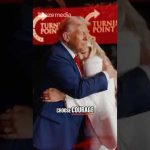Jimmy Kimmel’s abrupt suspension from his late-night talk show—following controversial comments about the Charlie Kirk tragedy—has thrust the debate over government regulation and free speech in entertainment into a national spotlight. While the show is slated for return after ABC’s weeklong pause, conservative audiences have largely celebrated Kimmel’s exit as a long-overdue victory against what they see as hypocrisy and moral inconsistency in mainstream media. However, the greater issue looming over this controversy is not simply Kimmel’s fate but the precedent set when federal bodies, such as the FCC, pressure networks to take action against content deemed objectionable.
During his tenure, Kimmel became a lightning rod for criticism due to his abrasive style and penchant for pushing boundaries—often at the expense of conservative values. This has drawn sustained backlash, with questions swirling about the authenticity of public outrage: Is it organic discontent, or is it the byproduct of government and corporate influence over broadcast standards? Recent involvement by the FCC, especially after Chairman Brendan Carr questioned the propriety of Kimmel’s remarks and threatened network licenses, underscores genuine fears among conservatives that government regulation could evolve into outright censorship.
While societal criticism and grassroots backlash are part of a healthy democracy, the chilling effect of government intervention must be scrutinized. Today it may silence a left-leaning comedian for poor taste, but tomorrow—under a different administration—the same mechanisms could be wielded against right-of-center voices, who have long faced obstacles in expressing their views. Charlie Kirk, like many on the right, has struggled with pushback on free speech; letting government determine the boundaries of acceptable discourse risks undermining the very freedoms foundational to American society.
There is a remarkable irony here: The left, traditionally accused of weaponizing “political correctness” to shut down dissent, now finds itself exposed to similar threats when the regulatory pendulum swings the other way. Conservatives warn that allowing government agencies to regulate entertainment opens the door to a slippery slope, where advocacy, satire, and debate—all vital components of the public square—may fall victim to political expediency or ideological litmus tests.
Kimmel’s departure, whether temporary or permanent, is a cautionary tale about the fragility of free expression in the age of political polarization and regulatory activism. The lesson for conservative voices is clear: guard the debate fiercely, insist on transparency in government action, and resist calls for censorship no matter who is in the crosshairs today. The media landscape changes quickly, and tomorrow’s rules may be wielded against anyone, making vigilance and the defense of free speech more essential than ever.




